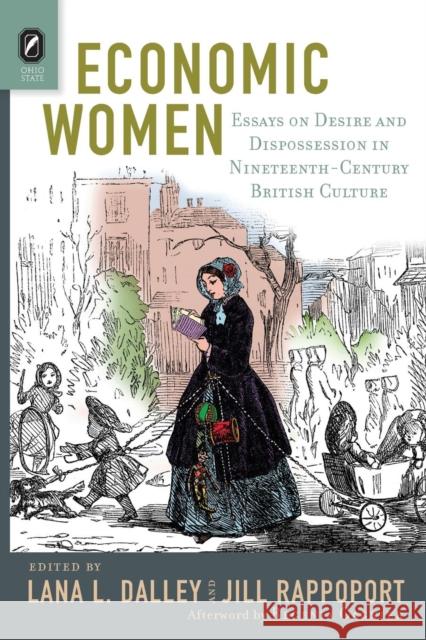Economic Women: Essays on Desire and Dispossession in Nineteenth-Century British Culture » książka
Economic Women: Essays on Desire and Dispossession in Nineteenth-Century British Culture
ISBN-13: 9780814254486 / Angielski / Miękka / 2017 / 250 str.
Economic Women: Essays on Desire and Dispossession in Nineteenth-Century British Culture, edited by Lana L. Dalley and Jill Rappoport, showcases the wide-ranging economic activities and relationships of real and fictional women in nineteenth-century British culture. This volume's essays chronicle the triumphs and setbacks of women who developed, described, contested, and exploited new approaches to economic thought and action. In their various roles as domestic employees, activists fighting for free trade, theorists developing statistical models, and individuals considering the cost of marriage and its dissolution, the women discussed here were givers and takers, producers and consumers.Bringing together leading and emerging voices in the field, this collection builds on the wealth of interdisciplinary economic criticism published in the last twenty years, but it also challenges traditional understandings of economic subjectivity by emphasizing both private and public records and refusing to identify a single female corollary to Economic Man. The scholars presented here recover game-changing stories of women's economic engagement from diaries, letters, ledgers, fiction, periodicals, and travel writing to reveal a nuanced portrait of Economic Women. Offering new readings of works by George Eliot, Bram Stoker, Willkie Collins, Charlotte Riddell, and Ellen Wood, and addressing political economy, consumerism, and business developments alongside the ethics of exchange and family finances, Economic Women tells a story of ambivalence as well as achievement, failure as well as forward motion.
Economic Women: Essays on Desire and Dispossession in Nineteenth-Century British Culture, edited by Lana L. Dalley and Jill Rappoport, showcases the wide-ranging economic activities and relationships of real and fictional women in nineteenth-century British culture. This volume's essays chronicle the triumphs and setbacks of women who developed, described, contested, and exploited new approaches to economic thought and action. In their various roles as domestic employees, activists fighting for free trade, theorists developing statistical models, and individuals considering the cost of marriage and its dissolution, the women discussed here were givers and takers, producers and consumers.Bringing together leading and emerging voices in the field, this collection builds on the wealth of interdisciplinary economic criticism published in the last twenty years, but it also challenges traditional understandings of economic subjectivity by emphasizing both private and public records and refusing to identify a single female corollary to Economic Man. The scholars presented here recover game-changing stories of women's economic engagement from diaries, letters, ledgers, fiction, periodicals, and travel writing to reveal a nuanced portrait of Economic Women. Offering new readings of works by George Eliot, Bram Stoker, Wilkie Collins, Charlotte Riddell, and Ellen Wood, and addressing political economy, consumerism, and business developments alongside the ethics of exchange and family finances, Economic Women tells a story of ambivalence as well as achievement, failure as well as forward motion.











